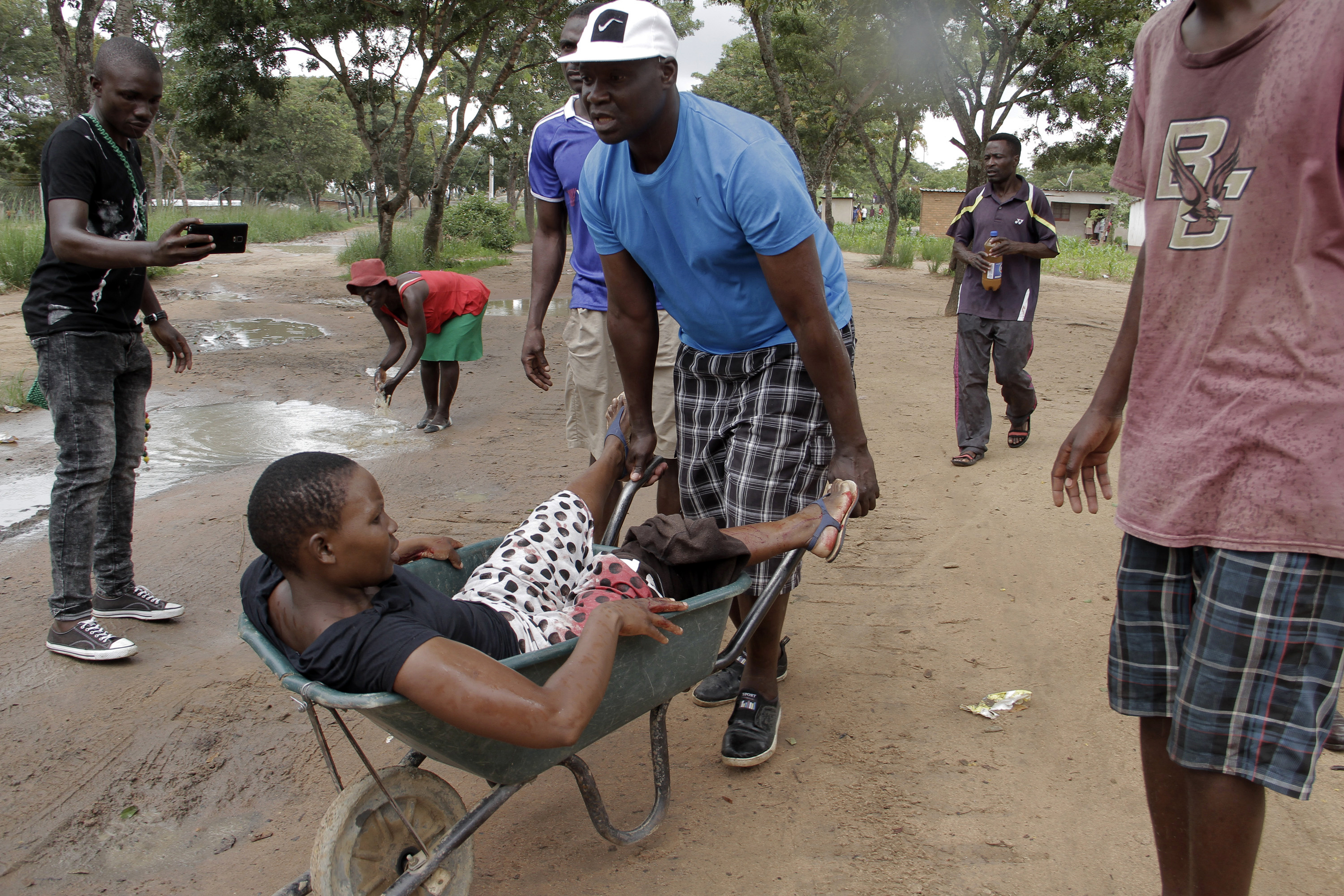
5 killed in Zimbabwe fuel hike protests, activists say
HARARE, Zimbabwe (AP) — Zimbabwe’s police and military patrolled the streets of the capital, Harare, Tuesday as a helicopter fired tear gas at demonstrators blocking a road and burning tires on a second day of deadly protests after the government more than doubled the price of fuel in the economically shattered country.
Eight people were killed Monday when police and military fired on crowds, according to Amnesty International. But Zimbabwe’s government said that three people were killed, including a policeman who was stoned to death by an angry crowd, according to Information Minister Monica Mutsvangwa.
The anti-government demonstrations amounted to “terrorism,” said Mutsvangwa on state television Tuesday night. The protests were “well coordinated” by Zimbabwe’s opposition, she said. She urged people to return to work and said the government forces would guarantee their security. She also said the government intends to pay an allowance to government workers to cushion them from the effects of the fuel price rise.
As Zimbabwe was rocked by the protests, President Emmerson Mnangagwa was in Russia and met President Vladimir Putin, to request loans and investment.
Police and soldiers went door to door and barged into homes in Mabvuku and other Harare suburbs and assaulted people, according to Zimbabwe Lawyers for Human Rights and witnesses. Many males in Mabvuku went into hiding to avoid being beaten, said residents. The opposition MDC party said its headquarters was attacked.
This has been Zimbabwe’s biggest unrest since deadly post-election violence in August. Witnesses also reported violence in the eastern city of Mutare, where people attacked passenger buses and destroyed some shops. Mutare was quiet by late Tuesday and there were reports of security forces going from home to home in that city and assaulting men suspected of participating in the protests.
Social media such as Facebook, Twitter and WhatsApp were disabled. Businesses and schools were shut down and public transport vehicles grounded in most of the country despite government assurances that security would be provided.
The government over the weekend announced a price of $3.11 per liter (0.26 gallons) for diesel, and $3.33 per liter for gasoline. That makes gasoline in Zimbabwe the most expensive in the world, based on data from GlobalPetrolPrices.com . The site says Hong Kong had the highest price for a liter of gasoline on Jan. 7: $2.04.
Lives were lost, police officers were injured, property was damaged and more than 200 people were arrested, said Owen Ncube, the state security minister. He blamed the main opposition MDC party and some civil society groups for stoking violence in an attempt to topple the government of President Emmerson Mnangagwa, who took power after longtime leader Robert Mugabe was forced to resign in November 2017.
The Zimbabwe Congress of Trade Unions had called for a three-day national shutdown to protest against the fuel price increase announced by Mnangagwa, who then left for Russia on a multi-nation trip to try to attract international investment and loans. He is set to attend the World Economic Forum in Davos, Switzerland, next week.
___
Follow Africa news at https://twitter.com/AP_Africa
The Western Journal has not reviewed this Associated Press story prior to publication. Therefore, it may contain editorial bias or may in some other way not meet our normal editorial standards. It is provided to our readers as a service from The Western Journal.
Truth and Accuracy
We are committed to truth and accuracy in all of our journalism. Read our editorial standards.
Advertise with The Western Journal and reach millions of highly engaged readers, while supporting our work. Advertise Today.












